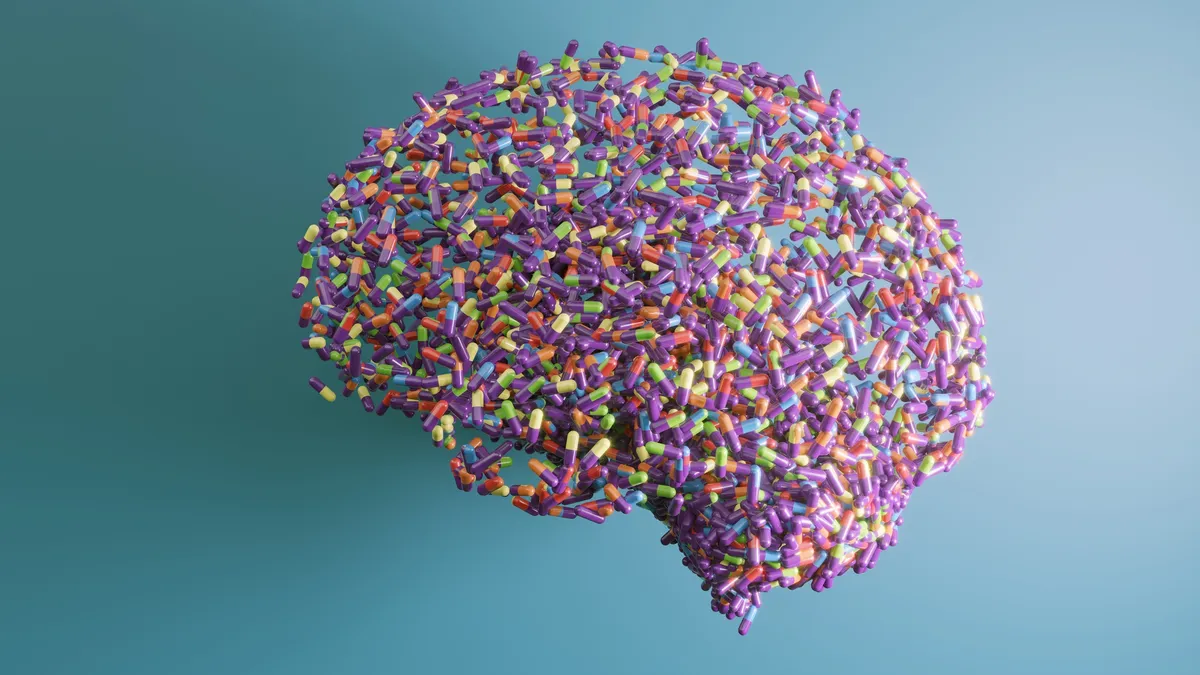For the 615 million people worldwide living with a mental health condition, treatment often falls short. More than 70% of those with depression don’t have success with the first antidepressant medication they try, and more than a third don’t find the right match even after multiple attempts.
“Although we have lots of treatments that do work for common mental disorders like depression, anxiety and schizophrenia, a worryingly large proportion of the patients suffering from these disorders do not get help,” says Hans Eriksson, chief clinical development officer for HMNC Brain Health, a precision psychiatric biopharma company with operations in the U.S. and Germany.
But HMNC Brain Health is working to change that with its pipeline of psychiatric precision therapeutics — and perhaps as important — corresponding tests to identify which patients might benefit most from using them.
Although clinical-stage psychedelic-based compounds have gotten a lot of buzz for their potential to shakeup the mental healthcare space, HMNC’s precision medicine approach could also disrupt the standards of care. According to Eriksson, the treatments are based on the recognition that a single disorder, such as depression, might arise from numerous underlying causes and the current one-size-fits-all treatment approach isn’t working for many.
The company evolved from the research of one its founders, Dr. Florian Holsboer, currently the head of its scientific advisory board.
“His research was focused on the link between the stress management systems that we have in our bodies, a physiological way to cope with stress, and the link to depression,” Eriksson says. “That’s essentially where the science started.”
HMNC is now investigating two compounds to help treat depression caused by this faulty stress response. Nelivaptan, a phase 2-ready compound that’s part of the company’s Nelivabon program, which includes a diagnostics test, aims to treat people with a stress dysfunction caused by hyperactivity of a neuropeptide called vasopressin. The disfunction affects an estimated 30% of people with major depression, Eriksson says.
Nelivaptan was abandoned by Sanofi years ago, possibly because it didn’t perform as well in trials as antidepressant medications that were already on the market. HMNC resuscitated the approach, recognizing that the drug may have fallen short — not because it didn’t work, but because it was tested in a group that was too broad, Eriksson says.
A second compound, in the preclinical stage, is a corticotropin-releasing hormone (CRH) receptor 1 antagonist, licensed from the Japanese company, Eisai
These aren’t the only targeted mental health therapeutics in development. The company is also working on another medication for treatment-resistant depression. Its Ketabon program is focused on an oral prolonged-release formulation of ketamine that Eriksson says is less likely to produce side effects — including disturbing dissociative episodes or high blood pressure — common with other forms of ketamine therapy, such as Johnson & Johnson’s esketamine nasal spray (Spravato).
"We can get away from a one-size-fits-all approach that has been super dominant in psychiatry over many decades."

Hans Eriksson
Chief clinical development officer, HMNC Brain Health
It also has another blood test designed to identify post-traumatic stress disorder (PTSD) early, so treatment can help prevent people from adopting harmful coping strategies. The test detects three biomarkers linked to dysfunction of the stress hormone, cortisol, and has been out-licensed to Polaris Genomics.
In addition, the company has commercialized a pharmacogenomic test in some European countries called ABCB1, that can help doctors predict a patient’s clinical response to common antidepressants.
“AI and machine learning were used to develop the companion diagnostic tests in the Nelivabon and Cortibon programs,” says Eriksson. “Sets of single nucleotide polymorphisms (SNPs) that can be evaluated to predict the outcome of interventions with vasopressin 1b-antagonists and CRH1R antagonists in depressed individuals were identified by this approach.”
Using these therapeutics and diagnostics together could prove to be a powerful combination in the mental health space.
“I think what makes us stand out is that we have a vision about how to develop not only novel medicines, but also simultaneously develop the biological tools to identify the individuals that are more likely to respond to these novel medicines,” says Eriksson. “So, we can get away from a one-size-fits-all approach that has been super dominant in psychiatry over many decades.”
Here, Eriksson discusses how the company’s focus on personalized medicine is poised to change mental healthcare for the better over the next decade.
This interview has been edited for style, length and clarity.
PharmaVoice: What do you think it's like for the individual patient who has to go through this trial-and-error process to find the right psychiatric medication?
Hans Eriksson: It's very frustrating, because the clinician typically talks about the fact that the medicine he recommends, whether it's an SSRI antidepressant or whether it's an atypical antipsychotic, on a group level have shown to be better than placebo. So, there is no doubt that the medications work, but the patients don't always understand that there is a large group of patients who will not respond to the first treatment and who will not respond even after switching to other treatments. And that is really, really frustrating to patients. It prolongs the suffering and in a disorder like depression, it's not only the individual suffering, but we also know that while being in the depressed state, there is an increased risk of a suicide attempt. This actually tells us that depression is also in some instances, unfortunately, a fatal disorder.
Do you think the field overall is heading toward a more personalized approach to mental healthcare and treatment?
Traditionally, Big Pharma has followed the path of making broad treatments for everyone. I think we've now reached a point where it's time to abandon that idea, because if you take depression as an example, it's such a heterogeneous disorder. Some people with depression sleep a lot, eat a lot, gain weight, or are very tired. Others sleep less, wake up early, don't eat, lose weight, and still, they are treating them with the same standard medication. Just using clinical presentation has not been adequate to identify subsets of individuals. People have tried to look at things such as what depressive symptoms you have sex, age and comorbid diseases and disorders. It has never really materialized anything that could be the basis of a strong algorithm to tell how the medicine should be used. But I think with these biological approaches that we have right now, first of all, genetic analysis of today is much less costly and using AI and machine learning approaches it's also possible to utilize the information needed in these enormous data sets in a more creative way to end up with something that is really meaningful for patients.
Where do you predict the field of mental health will lead in the next five to 10 years?
I think there are two big trends in psychiatry one is moving in the direction of precision psychiatry — different companies may define it slightly differently — but in essence it’s all about optimizing the treatment for individual patients. I think we are at the forefront of using biological tests to identify which patients are more likely to respond to a certain intervention. That's one big trend.
I think the other large trend is the repurposing of drugs that previously have been used extensively outside of proper psychiatry. I’m thinking about medicines belonging to the psychedelic and the dissociative groups. MDMA [known as “Molly” or ecstasy] was developed for PTSD [and] psilocybin [a psychedelic compound derived from “magic mushrooms’] for depression. Ketamine or esketamine, has been approved as a treatment for treatment-resistant depression. We're talking about very powerful interventions that when the research has been held back, mainly due to concerns about side effects of these compounds that, at least historically have had some tendency to be abused. Now there is a new realization that if you use these compounds in a diligent, and responsible way, you can really get good efficacy. And there are a number of very exciting development projects ongoing.
I think what these different approaches typically have in common is that you're talking about antidepressants with much faster onset. It doesn't take the four, six or eight weeks that you see with the standard SSRIs and they also have quite strong efficacy. That’s the other half of what we’re doing at HMSA Brain Health.




















